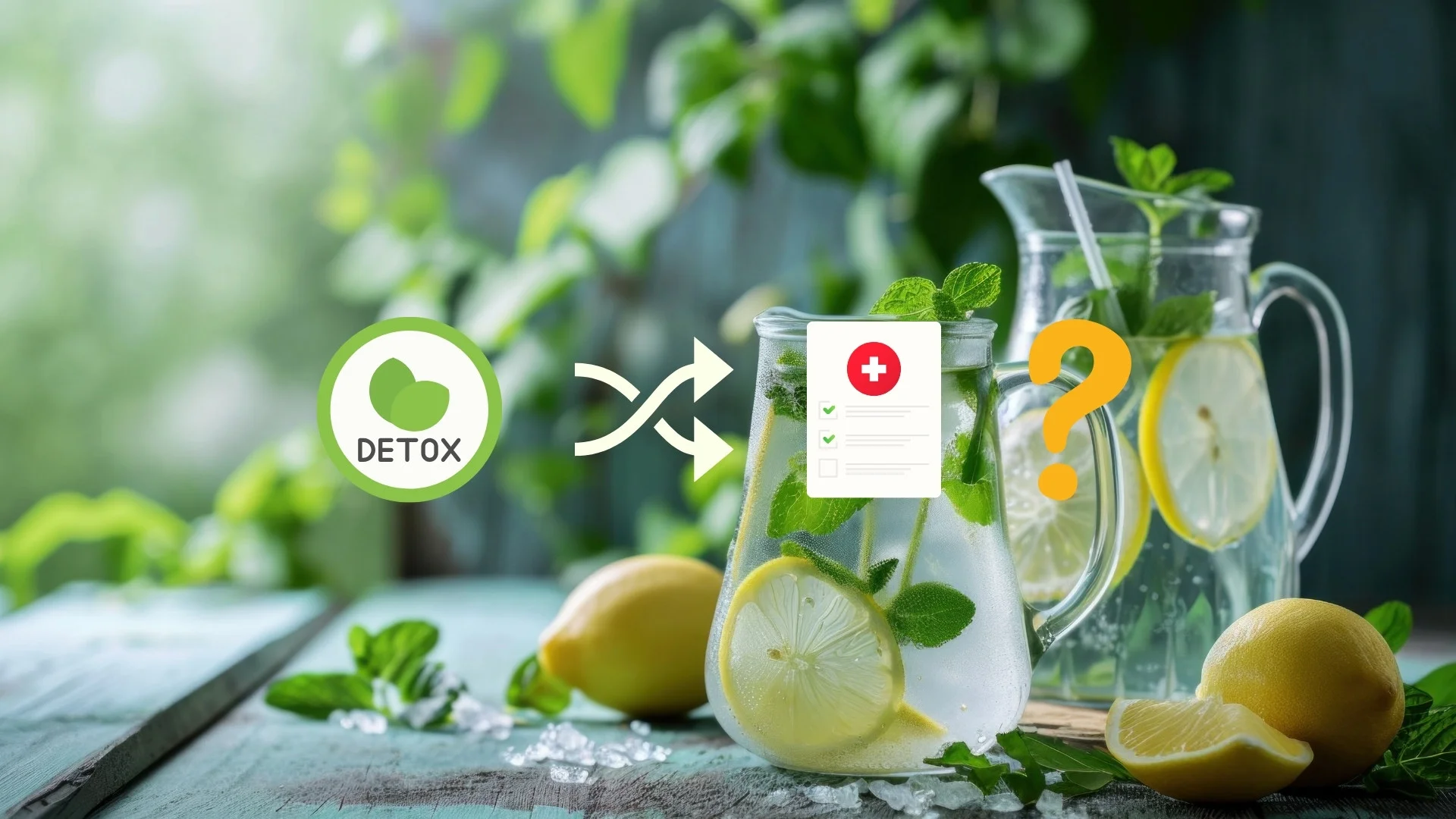
Do detox drinks actually work for passing drug tests?
Detox drinks have no reliable scientific proof of eliminating drug metabolites. Some may temporarily dilute urine, but regulated tests can detect this, making detox drinks ineffective and risky as a strategy.
Why do people use detox drinks before drug tests?
People use detox drinks in the hope of quickly flushing out substances. However, most simply dilute urine and do not remove metabolites, especially in DOT-regulated testing environments.
Can detox drinks cause a dilute urine test result?
Yes. Many detox drinks increase water intake, which can dilute urine. A dilute result may require retesting or an observed test, depending on the testing program.
Are detox drinks detectable in a drug test?
Most labs check for abnormal creatinine levels, gravity, and adulterants. If a detox drink alters these, the test can flag the sample and the employer may treat it as refusal to test.
Can detox drinks remove THC from the body?
Detox drinks cannot remove THC metabolites stored in body fat. Metabolite release depends on metabolism rate and time, not cleansing products.
Do detox drinks work for hair drug tests?
No. Hair drug tests detect drug use over months. Detox drinks have no effect on hair follicles and cannot change results of a hair drug test.
Do detox drinks work for DOT drug tests?
No. DOT drug testing includes lab confirmation and MRO review. Any attempted adulteration or dilution can lead to violations, discipline, or mandatory Return-to-Duty procedures.
Are detox drinks safe to consume?
Some detox drinks contain unregulated herbal ingredients or diuretics that may cause dehydration, electrolyte imbalance, or side effects. They should be used cautiously.
What actually helps the body clear drug metabolites?
Time, metabolism, and abstinence are the only proven factors in clearing metabolites. No drink or product can speed this process in a medically validated way.
What should I do instead of trying detox drinks before a drug test?
To maintain compliance, avoid substance use, stay normally hydrated, and work with certified testing providers. For DOT employees, attempting to cheat a test can result in violations and required Return-to-Duty evaluation.

In recent years, detox drinks have surged in popularity among individuals seeking a quick and easy way to cleanse their bodies, particularly when a drug test is looming. Marketed as miracle solutions to flush out toxins, these beverages promise to help users pass drug tests by purging their systems of unwanted substances. But how effective are they? Can a simple drink truly alter the results of a drug test, or are these claims too good to be true?
Drug test detox drinks typically contain a blend of water, vitamins, minerals, and herbal supplements designed to support the body’s natural detoxification processes. The primary mechanism by which these drinks work is dilution—by consuming large amounts of fluids, the concentration of drug metabolites in the urine is reduced, making it less likely to be detected during a test.
Common ingredients include:
The primary mechanism of detox drinks is to dilute the urine, which can temporarily lower the concentration of drug metabolites below detectable levels. Here’s a closer look at how they work:
The effectiveness of detox drinks is a topic of much debate. Some consumers swear by them, claiming they have successfully passed drug tests using these products. However, scientific evidence supporting their efficacy is limited.
A study conducted by the Journal of Analytical Toxicology found that while some detox drinks can reduce the concentration of drug metabolites in urine, they do not guarantee a negative test result.
Here are some key points to consider before opting for detox drinks for drug test:
To prepare for a drug test without using detox drinks or other questionable methods, focus on natural detoxification. Avoid drug use before the test, stay well-hydrated but make sure not to drink plenty of water as it can show up in the drug test as a dilute negative result. Foods high in fiber can help eliminate toxins in the digestive system. Consume a healthy diet high in fruits, vegetables, and lean proteins. Regular exercise can help boost your metabolism and eliminate toxins through sweat. Additionally, ensure you get adequate sleep to support your body’s natural detox processes.
By following these healthy practices, you can improve your chances of passing a drug test naturally.
| Drug | Occasional Use | Regular/Chronic Use |
|---|---|---|
| Marijuana (THC) | 1-3 days | 7-21 days (Regular) Up to 30 days or more (Heavy) |
| Cocaine | 1-3 days | Up to 7-10 days |
| Amphetamines | 1-3 days | Up to 7 days |
| Opiates (Heroin, Morphine) | 1-3 days | Up to 4 days |
| Benzodiazepines | 1-3 days (Short-acting) | Up to 10 days (Long-acting) |
| MDMA (Ecstasy) | 1-3 days | Up to 4 days |
| Barbiturates | 1-3 days (Short-acting) | Up to 3 weeks (Long-acting) |
| Synthetic Opioids | 1-3 days | Up to 72 hours |
| Alcohol | 12-24 hours | Up to 80 hours (for certain metabolites) |
This table provides a general overview, but individual results may vary based on factors like metabolism, body mass, and overall health.
While detox drinks might offer a temporary solution for passing a drug test, they are far from foolproof. Consuming large quantities of fluids, especially those containing diuretics, can lead to dehydration and nutrient imbalances.